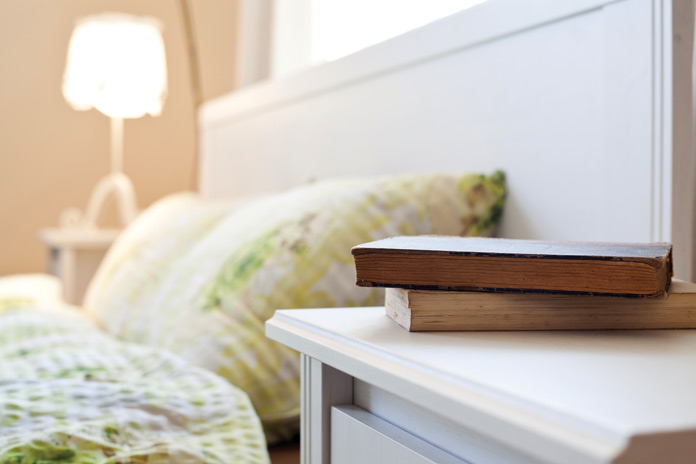A good night’s rest can increase your sex drive, help you lose weight, build strong bones, protect your brain from dementia, reduce your risk for depression and help you ward off the common cold. Yet only half of us are getting the recommended minimum for adults of seven hours a night (leaving the rest of us walking around like semifunctional zombies). If you’re serious about getting better sleep starting tonight (and every night thereafter), revamp your sleep routine with these simple steps.
1. Put Yourself on a Strict Sleep Schedule: Bedtimes aren’t just for kids—make one for yourself and don’t allow yourself to weasel out of it any more than you would let your children. In other words? “Make sleep a priority,” says Shelby Harris, Psy.D., director of Behavioral Sleep Medicine at the Sleep-Wake Disorders Center at Montefiore Medical Center in Bronx, NY. Plan for at least seven hours a night of sleeping, which is always going to be a better choice than burning through the latest season of Scandal on your DVR, reading work emails that can wait until tomorrow or shopping online well into the wee hours.
2. Once You’re in Bed, Have Sex or Go to Sleep: Seriously—experts say to get busy or get some rest. “Your bed should only be used for sleep and sex,” says Harris. That means no phones, TVs, computers, radios or e-books in your bedroom. Take a look around your room and remove any unnecessary distractions.
3. If You Can’t Sleep, Get Up Instead of Counting Sheep: Becoming stressed about sleeplessness will only exacerbate the problem. “If you haven’t fallen asleep after 20 minutes, get up, go to another room and do something quiet and relaxing,” says Dr. Jillian Elliott, an internal medicine physician with Phelps Medical Associates in Sleepy Hollow, NY. “People can develop an anxiety over going to bed. They’re worried that they aren’t going to fall asleep, and that makes them anxious, which prolongs falling asleep.”
4. Skip the E-Reader & Read a Real Book Instead: Save your Kindle for the beach and actual books for bedtime. “Your brain reads the blue light from electronics as the sun, thereby suppressing melatonin production and making sleep harder to attain,” says Harris. A recent Harvard study found that people who read e-books before bed take longer to fall asleep, have reduced evening sleepiness and melatonin secretion, and are less alert the next day.
5. Swap the Early Morning or Evening Workout for One in the Afternoon: For improved sleep, hit the gym in the afternoon. “Exercise is great for sleep but not within three hours of bedtime,” says Harris. The ideal time for exercise is four to six hours before bedtime, as this can actually help with falling asleep. Just 20 minutes of getting your heart rate up is all that’s needed—even a brisk walk around the block can work.
6. Go for Decaf-Only Coffee Runs After Lunch: Caffeine can take eight to 12 hours to leave your system, so avoid fully charged coffee, tea and soda after lunch. Instead, use your afternoon break to take a walk or squeeze in that afternoon workout.
Photo: shutterstock.com





